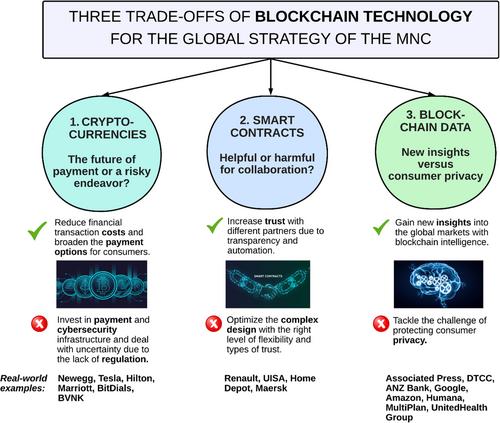A perspective on three trade-offs of blockchain technology for the global strategy of the MNC
Abstract
Research Summary
New technology plays a key role in shaping the global strategy of the MNC. We propose a perspective on how and why a novel technological development—blockchain technology—and its relevant applications affect the global strategy of the MNC. We focus on the trade-offs associated with cryptocurrencies, smart contracts, and blockchain data, and provide several real-world examples. While cryptocurrencies could lower financial costs and broaden consumers' payment options, they require new investments in cybersecurity and payment infrastructure. Smart contracts could increase trust in collaboration due to their automated, transparent, and inflexible rules, but their rigidity can harm collaboration. Finally, while blockchain data can enhance the MNC's analytics capabilities, it can also jeopardize consumer privacy.
Managerial Summary
Is blockchain technology all hype or a useful advancement for global firms? We propose that this technology has merits and drawbacks for financial transactions, collaboration, and data analytics. Cryptocurrencies have stolen the headlines and several leading organizations have already added them as payment methods. Their merits include lower transaction fees, better security, and higher speed, but they require expensive infrastructure and carry a stigma. Smart contracts can streamline agreements between parties but lack the flexibility that global firms need when interacting with suppliers and partners. Novel blockchain data can be plugged into marketing dashboards but can also threaten consumer privacy. Overall, the jury is still out on the role of blockchain technology for global firms.



 求助内容:
求助内容: 应助结果提醒方式:
应助结果提醒方式:


